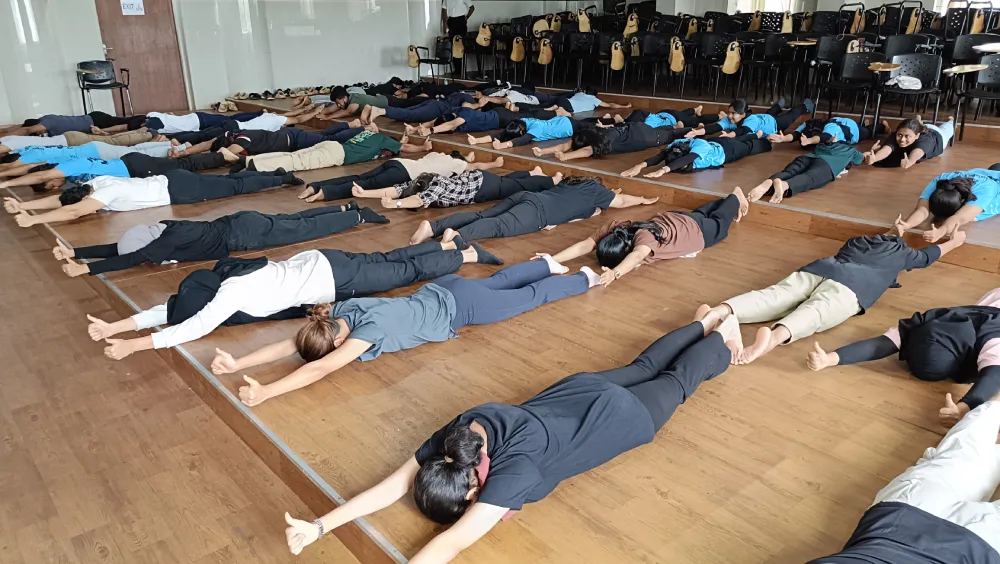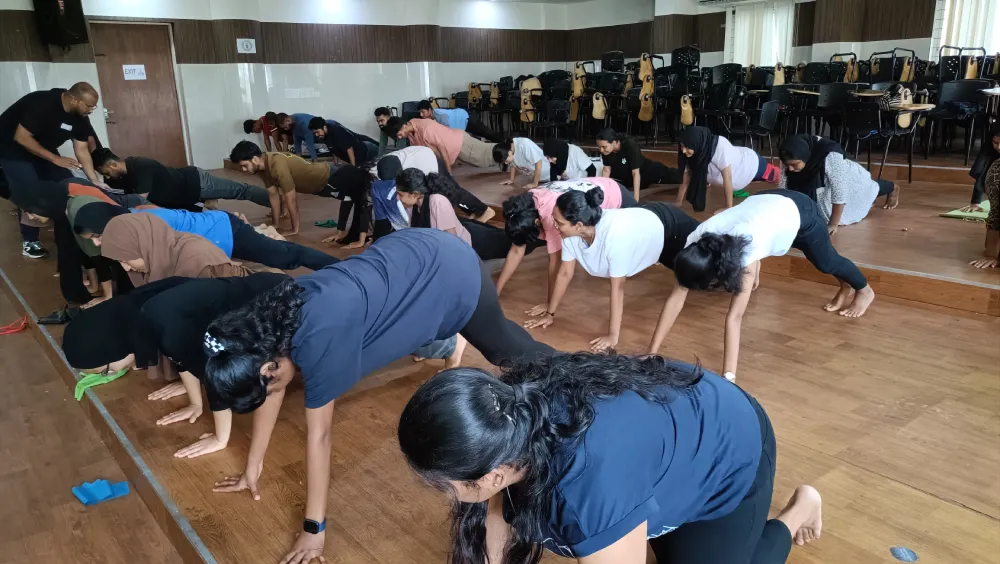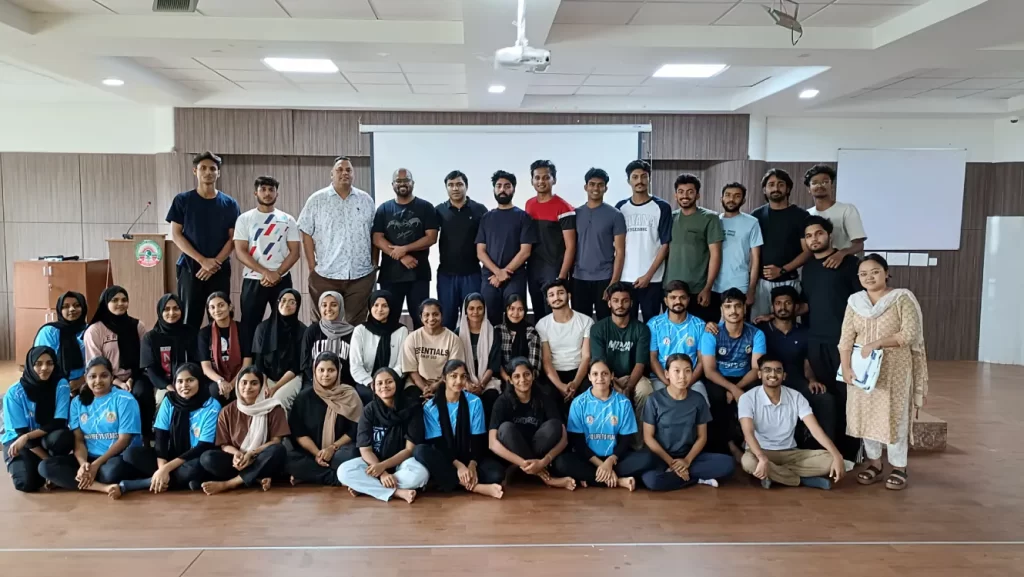Healthcare is rapidly evolving with new protocols, technologies and guidelines. Professionals therefore need to continually upgrade and update their skills, especially given the advancing technology in the field of health sciences. CPD opens up the minds of professionals to newer concepts, allows them to learn and hone their skills, stimulates innovation: all with a view to improving treatment protocols, and improving outcomes, besides career development.
The third one-day CPD workshop on Stability and Mobility Conditioning under the aegis of The Neuroaid and Research Foundation (NRF) was held at Kanachur College of Physiotherapy, Mangalore, Karnataka on 17th & 18th May 2024, by Dr Amit Malakar.
Dr Amit Malakar holds a Master’s degree in Sports Physiotherapy and currently works as an exercise science lecturer. He has over 13 years’ teaching experience, having taught over 10,000 students till date. His expertise includes different approaches, muscle types and pattern of targeting individual muscles of the body.
Introduction
This program is designed to help understand the need to strengthen the individual weak muscles of the body which are inadvertently left isolated during rehabilitation. The purpose is to gain permanent biomechanical correction through a consolidated exercise program. Working with targeted individualized muscles through strength and endurance training, effectively improves neuromuscular coordination, stability and mobility; this helps patients achieve permanent recovery in a majority of cases.
Highlights
- Principles of Strength Training
- Role of Equipment
- Heart Rate Training Zones
- Core Stability
- Exercise Prescription and Guidelines
- Targeted Specific Muscle Training
The Workshop
72 students from the third and fourth year of Bachelors of Physiotherapy (BPT) program attended the workshop with great interest.
The Workshop commenced with introductions followed by an in-depth theory class on stability and mobility relationships, activation of core principals of training and exercise recommendations, followed by hands-on training.
Practical demonstrations were the highlights of the workshop. Dr Malakar’s diligent research and lucid style of presentation kept the students deeply engaged and interactive. The workshop involved individual student participation, in order to experience the nuances of isolated muscle contractions, maintaining stability of the spine, and activating neuro-muscular coordination.

Hands-on training of the spine and pelvic girdle was intriguing, with each muscle being trained thoroughly in lying and standing positions. The sessions were tiring, as they included strength and endurance with focus on core stability.
Dr Malakar then went on to articulate on how stability and mobility fit into the overall treatment plan. Using this program, therapists all over the world, he said, were doing surprisingly well by making recovery permanent.
Participants were also trained on the use of Thera Bands while providing tailored exercise regimes, focusing on the correct use of stabilizer and mobilizer muscles in the body. Enough time and opportunity were given to students, to ensure they were comfortable, confident and comprehended the learnings, to be able to practise this regime appropriately on patients.

Hands-on sessions were extremely beneficial; as we know, therapists benefit greatly from real time training, primarily emphasising on functional movements with strength training, cardio and core-focused tailored exercise programs.

Photographs with our Mentor Dr Suhail, Dean Kanachur College of Applied Sciences, Mangalore. Certificate distribution brought the session to a close. Dr Amit Malakar appreciated the enthusiasm and energy of the students and wished them well in their future endeavours. He was felicitated and presented with a token of our appreciation and affection.
NRF will continue to have such Training Workshops more frequently, for both internal and external therapists.

Feedback from all participants was digitally collected against 15 parameters and analysed; of the 72 participants, 59.7% were third year and 40.3% fourth year students of the Bachelor’s program in Physiotherapy. Quality and Content of Teaching, Practical Sessions, Understanding of New Principles, etc scored a high 86-90%. Both Professors and students expressed a keen desire for NRF to conduct further such sessions.



